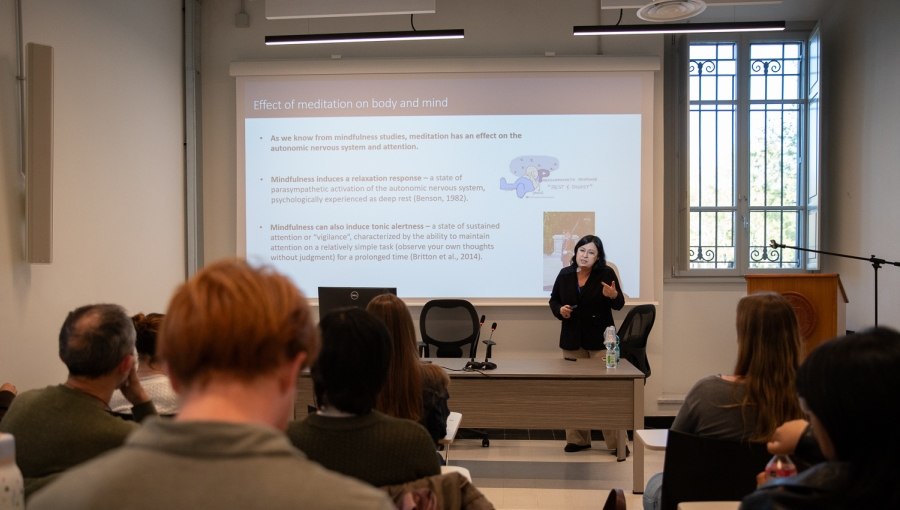Other Words: JCU Welcomes Novelist Nicola Lagioia
The JCU Department of English Language and Literature hosted Italian novelist Nicola Lagioia on February 22 for a talk centered around his latest true crime novel, La Città Dei Vivi (“The City of the Living” Einaudi, 2020). The event, co-sponsored by the Department of Modern Languages and Literature, kicked off “Other Words,” a series of conversations focusing on acclaimed contemporary Italian writers and their relationships to literature in English. Professor Alessandra Grego interviewed Lagioia and Professor Nefeli Misuraca acted as interpreter.

Other Words – Novelist Nicola Lagioia
Professor Shannon Russell, chair of the English department, specified in her introduction, “We will be asking Italian writers how they respond to the cultural and economic predominance of English language fiction, tropes, and writing styles. What is their attitude towards literature in translation? How accessible is the international book market to writers in Italian? Is a shift in cultural influence underway?”
One of Italy’s most critically acclaimed novelists, Lagioia, who lives in Rome, is also a podcaster and radio presenter. He is the director of the Salone Internazionale del Libro di Torino, the largest publishing fair in Italy. Lagioia is the recipient of several awards, including the 2010 Viareggio Prize and the 2015 Premio Strega Prize for his novel, La Ferocia (“Ferocity” Einaudi, 2014). His novels have been translated into 15 languages.
The style of La Città Dei Vivi was inspired by Truman Capote’s novel, In Cold Blood (Random House, 1966) and is based on the true story of 23-year-old Luca Varani, who was tortured and killed in Rome in 2016. Two friends were charged with aggravated murder in a case that shocked the city. One of them said, “We wanted to see what it was like to kill someone.” Lagioia spent four years in Rome researching the crime and gathering news coverage for evidence on the case, giving it an empathetic viewpoint. “Perhaps we feel that reality is so incomprehensible that we need a writer to shed light on a world that will otherwise feel impossible to see. We want the writer’s poetic vision to express the array of information,” he said.
Literature is a way to scrutinize reality, according to Lagioia. “I appear as a character in the book, but in a very discrete way and only a few times. The narrator of In Cold Blood is removed from the text, but La Città Dei Vivi is very much about the effect that the murder has on me,” he said. “It is important to give a first-person approach in highly emotional instances. This was not an aesthetic choice, but a practical one.”
When asked about the role that the city of Rome plays in the novel, Lagioia said, “Rome is full of contradictions. It is often referred to as the Eternal City. But no one is more aware of the non-eternal side of the city than the Romans themselves. The impermanence of things is something that is ingrained in Rome. It is also a very difficult city to live in, even going from the north part to the south can be very complicated. Rome seems to be unlivable, but at the same time, it’s very lively. While other cities seem to know that the end of the world will arrive, for Rome, the end of the world has already happened. You can’t get a Roman to be surprised by anything.”
The next talk, by Claudia Durastanti, will take place on March 8, followed by Riccardo Capoferro on April 5.





